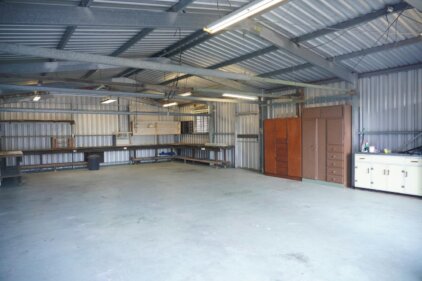In recent years, the construction industry has witnessed an evolution that has fundamentally transformed the way projects are managed, designed, and executed. One of the areas most affected by this transformation is building estimating services. Technology has changed the game for cost estimators, providing tools that have enhanced accuracy, efficiency, and communication throughout the construction process. From traditional manual methods to advanced software applications, modern building estimating services are undergoing significant innovations to meet the needs of the dynamic construction industry.
This article explores the role of technology in modern building estimating services for construction, highlighting the impact of digital solutions, automation, and integration in driving project success. It examines how advancements in software and data analysis are revolutionizing cost estimation and ensuring projects are completed within budget and on schedule.
Digital Tools Revolutionizing Construction Cost Estimation
Technology has introduced a range of digital tools and software that have made construction cost estimation more efficient and reliable. Gone are the days when estimators would spend countless hours manually calculating the cost of materials, labor, and other project resources. Modern software solutions allow estimators to generate accurate budgets in a fraction of the time, providing stakeholders with better insights and planning options.
One of the key drivers of this transformation is Building Information Modeling (BIM), which has revolutionized not only design but also the estimation process. BIM enables cost estimators to create 3D digital representations of buildings, providing a more comprehensive view of materials, labor requirements, and timelines. This visual representation makes it easier to assess costs and identify potential issues before they occur. Additionally, BIM models are continuously updated, which ensures that all stakeholders have access to real-time data for effective collaboration.
Cloud-based estimating software is another technology that has changed the face of cost estimation. These platforms enable estimators to work from anywhere, at any time, while maintaining data security and reliability. Such software also promotes collaboration by allowing team members to access the same data simultaneously, thus reducing errors caused by miscommunication and outdated information. The integration of artificial intelligence (AI) and machine learning further enhances cost estimation by analyzing historical data and providing predictive insights, helping estimators to make better-informed decisions.
Automation and Data Integration for Enhanced Accuracy
The adoption of automation has been a major milestone in the modernization of building estimating services. With automated processes, estimators can save time and reduce human error by relying on algorithms to calculate costs, quantities, and schedules. Automation allows for the quick extraction of information from plans, drawings, and other documents, which significantly reduces manual work and ensures accuracy.
Another critical aspect of technology in construction cost estimation is data integration. Estimators no longer need to work in isolation; rather, they can integrate their systems with project management software, procurement platforms, and other digital tools to ensure seamless information flow. This integration allows for a more holistic view of the project, making it possible to incorporate real-time cost updates, track changes, and anticipate potential cost overruns.
Furthermore, integrating technology with supplier databases has improved procurement processes. Estimators can quickly check the availability of materials, compare costs, and make more informed choices. With integrated technology, it becomes easier to produce estimates that reflect the latest market conditions, making the budgeting process more transparent and aligned with current pricing.
Building Estimating Services in the UK: A Technological Outlook
In the UK construction industry, building estimating services are taking advantage of technological advancements to deliver more precise and efficient solutions. With the integration of AI, machine learning, and cloud computing, estimating services can handle complex projects, ensuring better outcomes and improved resource allocation.
For those seeking reliable estimating services for their construction projects in London and across the UK, technology is playing a vital role in delivering these capabilities. One such service provider that is at the forefront of utilizing advanced estimating tools is https://estimedes.co.uk/. By combining a deep understanding of construction practices with the latest in digital solutions, they ensure that clients receive accurate and competitive estimates tailored to their specific project needs. Building estimating services in the UK, such as those offered by EstimateDES, leverage these tools to help clients plan effectively, reduce costs, and manage risks throughout the project lifecycle.
The adoption of advanced tools and technology ensures that construction projects are both on time and within budget, providing a level of accuracy that traditional methods could not achieve. With EstimateDES, contractors and project owners can benefit from state-of-the-art estimating services that keep pace with the evolving demands of the construction industry.
Future Trends in Construction Estimation
The future of building estimating services is closely linked to further advancements in technology. Emerging trends such as artificial intelligence, robotic process automation (RPA), and big data analytics are expected to take estimation accuracy and efficiency to the next level. AI, in particular, has the potential to streamline the entire estimation process by learning from historical project data and predicting costs with minimal human intervention.
Virtual and augmented reality (VR/AR) are also set to have an impact on cost estimation by providing immersive project visualizations. By allowing stakeholders to virtually explore a building before construction, VR and AR can help identify potential issues that may affect costs early on. This means that estimators can provide more accurate budgets, while clients have a clearer understanding of the project scope.
Another trend is the increased use of real-time analytics. By leveraging data collected from sensors and IoT devices on construction sites, estimators can update their estimates in real-time, adapting to changes in labor productivity, material costs, and other variables. This proactive approach allows for dynamic budgeting, which is more adaptable to unforeseen circumstances, ultimately reducing the risk of cost overruns.
Conclusion
The role of technology in modern building estimating services for construction cannot be overstated. From digital tools and automation to advanced data integration, technology has brought about a revolution in how estimates are prepared and managed. As the industry continues to evolve, the reliance on technology will only grow, providing greater precision, efficiency, and collaboration in construction projects.
Companies such as EstimateDES are leading the way by embracing the latest technology to deliver exceptional estimating services in the UK. As trends such as AI, big data, and VR continue to shape the industry, building estimating services will become increasingly sophisticated, supporting better decision-making and driving success in the construction industry.





